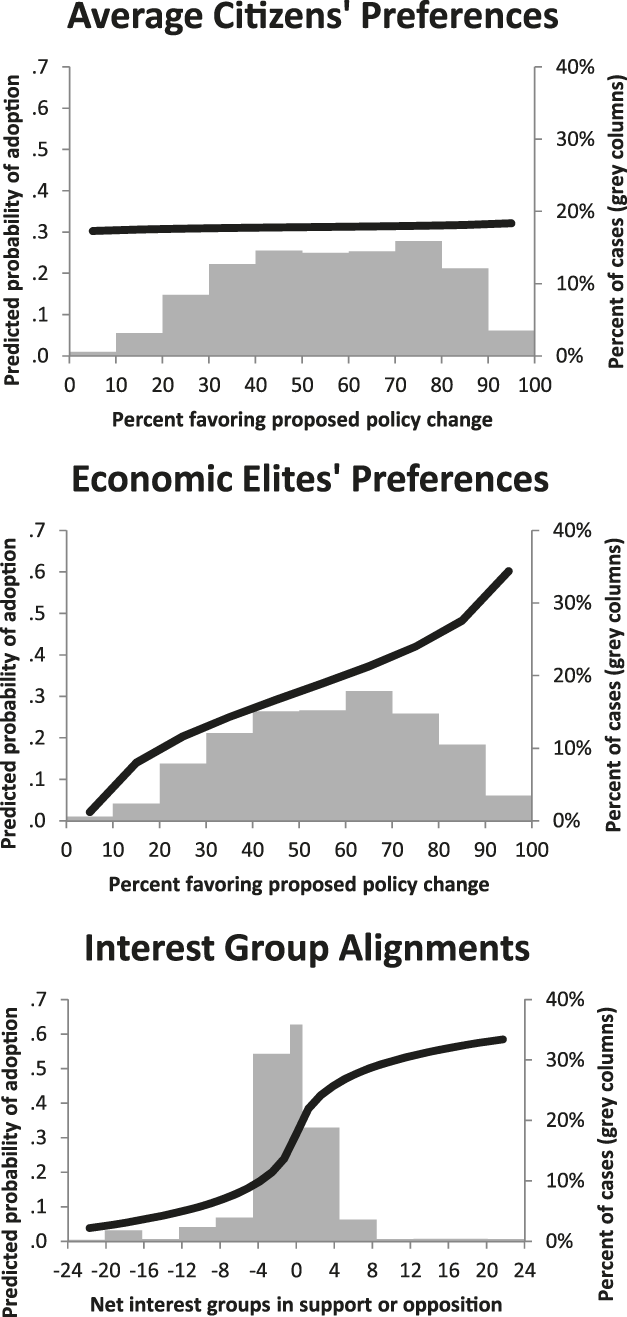
Posted on 05/05/2021 5:42:25 PM PDT by Joachim
Multivariate analysis indicates that economic elites and organized groups representing business interests have substantial independent impacts on U.S. government policy, while average citizens and mass-based interest groups have little or no independent influence.
(Excerpt) Read more at cambridge.org ...
The conclusions are no surprise to anyone paying general attention to US government, but the article provides an empirical background for explaining Trump's appeal to ordinary voters: He simply stepped into the yawning gap between what the people want and what the people's (nominal) representatives pursue. (A gap big enough march an insurgent political campaign through.)
Many Biden voters were persuaded to see Trump as evil and oppressive. But removing Trump ended (at least temporarily) a significant ongoing opportunity for implementation of at least some policies favored by ordinary voters--and consolidated the power of economic elites and special interests to continue to oppress the will of ordinary people.

(strongly favored policies in our data set that failed include proposed cuts in taxes...)It's called rent-seeking.
Disclaimer: Opinions posted on Free Republic are those of the individual posters and do not necessarily represent the opinion of Free Republic or its management. All materials posted herein are protected by copyright law and the exemption for fair use of copyrighted works.